Since his first major work Notes from the Underground was written in 1864, Fyodor Dostoyevsky’s influence can be found in literature, philosophy, and even pop culture. Dostoyevsky’s ideas have transcended his original Russian audiences of the 19th century and are now regarded as the building blocks of existential fiction and nihilist commentary. It’s hard to find a modern drama with a deeper meaning that doesn’t pay homage to Dostoyevsky in one way or another. Popular crime stories of today would not pack the same punch if Dostoyevsky had not examined Raskolnikov’s psyche in Crime & Punishment. Ridley Scott’s Blade Runner would have had Decker just running around administering eye-test with no conflict, if Dostoyevsky had not broken down the door of existentialism, allowing characters to question and make sense of their creator and the world they put them in. The examples are endless and give credibility to Dostoyevsky’s legacy and contribution to dramatic art.
As exciting as it is to find Dostoyevsky’s influence in drama, one must admit that it is not the most difficult task. Dostoyevsky’s works are so prolific that the allusions to his writings are easy to find in many forms of dramatic art. This is why it’s so tantalizing to pick apart comedies and find the glimmers of Dostoyevsky’s influence. At face value, any sort of comedy appears to be the opposite of a Dostoyevsky novel. Novels known for being about mental anguish, crime, and bleak settings contradicting comedies usually lighthearted and bright in nature. However, similarities begin to arise after deconstructing comedy to its core. In doing this, comedy is left about showcasing a person or thing being crazy but instead commentating on the absurdity of the world. The heightened sense of joy in comedy works similarly to the heightened sense of dread in a Dostoyevsky novel. Both serve as a function to examine the irregularities of the world and the different rationalities (or lack of) of the individuals that inhabit it.
While satire can clearly show similar traits to Dostoyevsky’s writing, comedy doesn’t have to be dark to be influenced by him. Different types of comedy have traces of Dostoyevsky, so it is fitting to explore his influence in television’s largest and longest-running comedy program that features many different comedic styles. Saturday Night Live is said show and since its first airing in 1975, NBC’s trademark sketch comedy show has been amplifying Dostoyevsky’s ideas in the most humorist of ways. While there are no direct comparisons from the show to Dostoyevsky, the subtext of many different sketches over the years are rich with comparisons that can be made to Dostoyevsky’s work. The show might seem silly or overrated to some, sketch comedy at its truest is about examining and commenting on the world by adding in the absurd to allow audiences to watch a social norm be deconstructed and how it impacts others.
For this exercise, I will be choosing one different SNL sketch for each of Dostoevsky’s most prominent works. None of these sketches are directly related to any of Dostoevsky’s works. Instead, the analysis is about discovering the enjoyable small comparisons.
Notes from Underground and Matt Foley: Van Down By The River
Dostoyevsky’s famous work Notes from Underground is centered around an unnamed, isolated, cynical man with the bleakest outlook on life. Known as the Underground Man, Notes from Underground is filled with his bitter ramblings and memories which led to his outlook. Removed from society, the Underground Man shares thoughts on the problems with idealism and the quest to create a society without pain and suffering. Ahead of its time, Dostoyevsky uses Notes from Underground as a platform to create an anti-hero to get his ideas across from a distance. The character and events in the work are a heightened sense of drama and what would lead a person to get to such point.
Surprisingly, this is almost identical to one of Saturday Night Live’s most popular sketches Matt Foley: Down By The River. In this sketch Chris Farley plays the named Matt Foley, a burn out turned motivational speaker who has come to lecture two teens caught with pot. In the sketch, Foley tells the teens to forget about their hopes and dreams because the world can not be the perfect place we hope for. He humorously shares his story and how he has become isolated from society, like the Underground Man. The comparisons between the sketch and Dostoyevsky’s works are humorous but have a clear influence on the troupe of a reclusive man spewing the problems with life. It makes you wonder if Dostoyevsky envisioned living in the underground as a van down by the river.
Crime & Punishment and Puppet Class
Arguably Dostoyevsky’s most famous novel, Crime and Punishment is the greatest psychological examination of a criminal’s mind in all of literature. Not afraid to venture into dark places and themes, Dostoyevsky explores the psyche of the novel’s protagonist Raskolnikov before and after he commits the act of murder. The novel does not shy away from examining a criminal’s thoughts from his good and bad moments. Exploring Raskolnikov’s lack of empathy and then damning guilt, Dostoyevsky comments on human nature, our egos, and what a guilty conscious can do to the soul. Readers are put into the view of Raskolnikov allowing for little distance. His dark thoughts are presented as logical and the effects created are a literary masterwork of cynicism and guilt.
As strange as it might seem Crime and Punishment features many similarities to a modern SNL sketch class that takes place in a puppet class. In the sketch, Bill Hader plays the role of a gruff veteran with unresolved trauma from his time in the war. While the class is supposed to be sappy and cheesy, Hader’s character uses his puppet to explain his reasoning behind the horrors he saw and committed in war. The Vet uses the puppet as a way to express his feelings of extreme guilt in a similar fashion that Raskolnikov pleads to the reader. While one is designed to create a serious effect and the other silly, both in their own ways explore the psyche of built-up guilt after a traumatic act. Dostoyevsky’s influence is more than prevalent as the archetype would have not reached the heights to be parodied if not for him.
The Idiot and More Cowbell
Different from his previous works of a disgruntled man verbally lashing out against society, Dostoyevsky’s The Idiot is focused on a simple man that society holds ill-will towards. Based on off of Dostoyevsky’s own near-death experience, The Idiot’s protagonist Myshkin is a good-hearted that lives a carefree life only seeing the beauty in things. Myshkin’s view and modest nature leave the other characters around him to see him as lacking intelligence. Against a world of man-made rationality and seriousness, Dostoyevsky comments on the beauty of simplicity that is often overlooked and treated poorly. Instead of a spiritual life and view to strive for Dostoyevsky’s comments on how society attempts to eat up and put down this way of thinking.
The themes of The Idiot and treatment of Myshkin can be viewed in a similar way to SNL’s most iconic sketch More Cow. The sketch has a simple premise but large comedic results. The sketch parodies a Behind The Music clip of the Blue Oyster Cult during the recording of their popular song The Reaper. Will Ferrell plays a good-hearted bandmate enthusiastic to record the song and contribute his part of banging a cowbell in the background. Comedy ensues as the other characters get frustrated by his simplicity and his difference. They yell at him and put him down when all he wants to do is play his cowbell. Once a prolific music producer hears the cowbell and loves it, Ferrell’s character that was once treated as an idiot is then regarded as a musical genius. In this way, it is easy to see Dostoyevsky’s influence in how stories are structured around characters with simple mindsets treated poorly by peers and the positive messages that arise from both. The protagonist of each media may be different, but the overall effect is the same.
The Brothers Karamazov and Brothers
Regarded as Dostoyevsky’s last great work The Brothers Karamazov is perhaps the brilliant Russian author’s most symbolic work. Centering around three different brothers, who represent different views in life, The Brothers Karamazov highlights how these views interact and combat with each other. The Karamazov Brothers’ troubled Father is also a central character to the plot exploring the parent-child relationship, the effects of poor nurturing, and unchecked aggression. The Brothers Karamazov dives deep into the mindset of each sibling and human nature itself. As different beliefs and lifestyles are explored, the rather is absorbed into Dostoyevsky’s magnificent writing and reflection of ideas.
The SNL sketch Brothers is used as the best example in exploring similarities between Dostoyevsky’s novels and sketch comedy. In the Brothers, two 6th grade boys played by Beck Bennett and Kyle Mooney, humorously fight and argue with one another not caring about the image they create in front of their parent’s guests. The brothers scrap with each other tooth and nail to prove that they are better than the other. These fights lead to hilarious moments like one getting thrown through a wall, while their father sprays them with a hose to symbolically cool off. Though not directly comparable, Brothers contains shades of Dostoyevsky in examining the inherently combative relationship between siblings. Whether it be a quest for male dominance or a bid at an unfound father’s love, Brothers serves its comedic purposes while also examining adolescence and the need for approval. It could be thought that two boys from the sketch could grow into their own Brothers Karamazov.
Dostoyevsky Reimagined: The Making of Notes from the New World
Not in the same vein as Saturday Night Live, Director Vitaly Sumin’s newest project is an engaging film that needs to be seen to believe. Entering the realm of real-life absurdity and a gripping mystery, Dostoyevsky Reimagined is an ambitious film that documents the disappearance of screenwriter Robert Hurley in the middle of the production of Notes from the New World. The twist and turns of the film provide unique thrills similar to Dostoyevsky’s own work. To stay up to date with the project, consider watching the trailer and signing up at the link below.
Want to know about VM Productions‘ Dostoyevsky-Los Angeles Project and about the films we make? Want to participate in our projects? Sign up to get tickets to the premiere of our movie (currently in post production), Dostoyevsky Reimagined-BTS and grab our FREE e-books !
 |
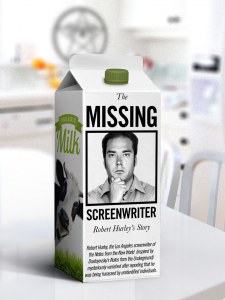 |
Follow us through our social media on Twitter, Facebook, Pinterest, Tumblr, Instagram, Goodreads.

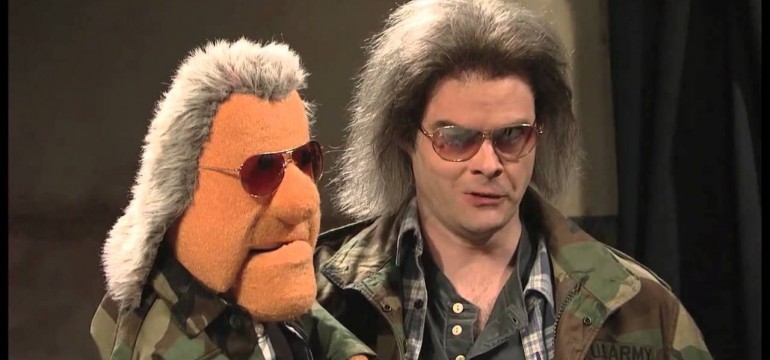

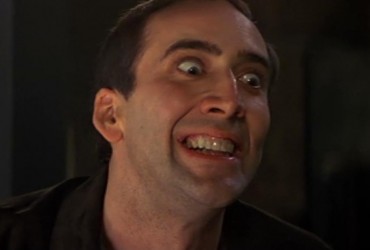
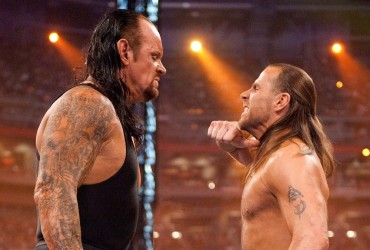
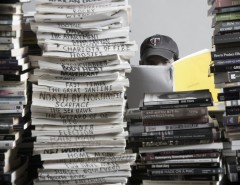


Leave a Reply